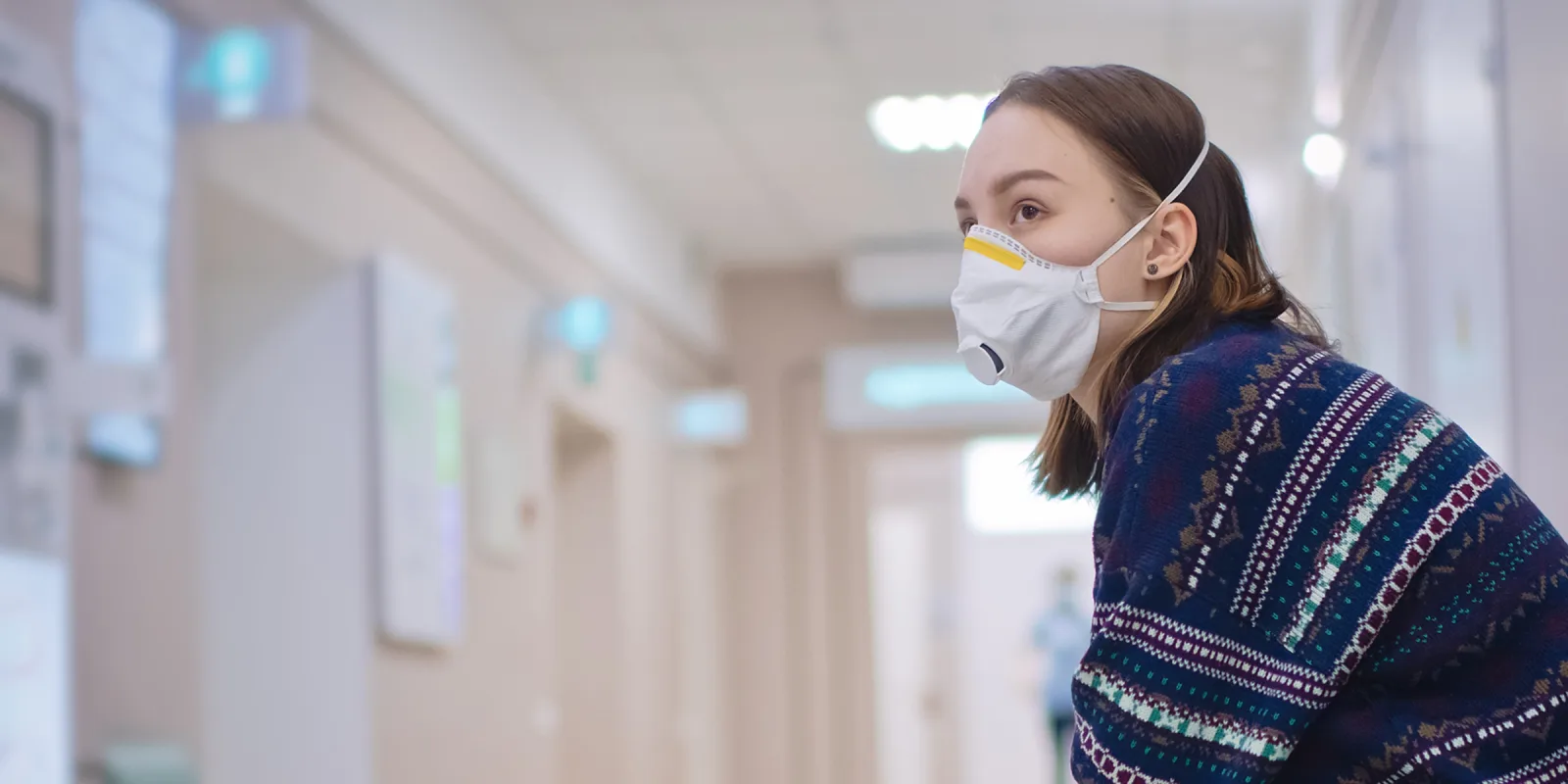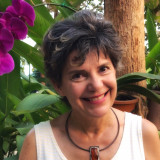
Somewhere in China, the coronavirus passed from a bat to a human, then human to human, and the world as we knew it was over.
Kids stayed home. So did their parents. They started speaking to each other, instead of watching their phones as they rushed from the ballet rehearsal to the soccer game, via McDonald's drive-through.
Sports got suspended. Millions of rabid sports fans remembered that their home team lives right here, at home, and that life goes on without a ball.
Avid shoppers switched from checking out the latest fashions to competing for toilet paper, masks, and PPE.
Haircuts, manicures, even lipstick, fell out of favor since the salons are closed, and nobody sees your lipstick under your mask until it spreads all over your face making you look like the Joker.
Couch potatoes got struck by an irrepressible urge to go out. Folks who never met a mountain started hiking. Those who hated being touched became huggers. Dogs who never got walked got exhausted, taking out not only their extended family but also the neighbors.
Instead of live sports — dead now — people have started to watch live shows featuring ERs and ICUs. Celebrities are out, health care workers are in. Dr. Fauci's image is the hottest thing on Amazon in everything, from socks to prayer candles. EM docs, the Cinderellas of medicine, are no longer asked when they'll finally specialize since COVID-19 put EM on the map.
It also did other good things: cleared the air and emptied animal shelters. It woke us up from our regular life and the daily grind. It reset our priorities and allowed us to stop and think. And reminded us that medicine is not retail.
For years, hospitals and administrators have struggled to reform medical care into a customer-driven industry. Patients became customers, and doctors became providers. The science and art of medicine were out. The patient experience was in.
We initiated health care providers into Disney's religion of customer satisfaction. We taught them to manage expectations and mitigate problems. And we found The Tool: Press Ganey.
Press Ganey is a standardized survey rating the patients' hospital experience. It includes questions on their comfort, privacy, and pain control. It quantifies the patient experience and correlates it with doctors' revenues. It also incidentally contributed to the opioid epidemic by pushing the concept of pain as the fifth vital sign.
The average Press Ganey response rate, as per an NIH study, is 16.5%. Less than one in six. And only two-thirds of them answer all the questions. Still, regardless of their lack of objectivity and reliability, these surveys are how the quality of medical care is calculated.
Press Ganey has nothing to do with patient safety, sound medical judgment, or appropriate medical care. Quite the opposite, in fact. Press Ganey is about the customer experience, not safety, nor medicine. It's all about the pleasurable experience of being in the hospital. That's insane to start with.
But what does that look like during COVID-19? One colleague of mine said, "Press Ganey is irrelevant during a pandemic. The survey presumes medicine is a service industry. When you're tubing someone with diffuse pulmonary edema in an isolation ICU using the same PPE you've had all month, concepts of service go out the window."
Thanks to COVID-19, keeping patients alive became more important than keeping them comfortable. Staying alive became more relevant than waiting times, Percocet, and turkey sandwiches.
Patients are still upset. They have good reasons. They want tests telling them if they're to live or die, and they can't have them. Even if they do, the results will take days. They want to feel safe. They don't want people coughing on them or touching them, not even medical providers (unless they're wearing PPE and they've been tested).
The regulars, the "pain in the elbow for six years" and the "can't keep anything down since January" and the "I need a note for work," are gone. They don't think they're sick enough to go to the ER and risk their lives with all the sick people out there. And they're right.
Unfortunately, that also goes for the indigestions that are, in fact, heart attacks, the weak and dizzy that are, in fact, strokes, and many others who need care but are afraid to go to the ER.
But this time, patients and medical professionals are on the same page. We all agree that staying alive is more important than the wait, the lack of comfort, and even the lack of privacy. After all, you don't go to the hospital for the experience. At least not in the hot spots.
What's happening elsewhere? It's a different world. In the not-hot spots, doctors and nurses are getting fired, or at least their pay gets cut. As the pandemic of the century unplugged the U.S., our medical professionals are unprotected, overworked, overexposed, and dying. They endanger their families; they get fired if they speak up; they get their hours cut unless they are in a hot spot.
America is big, but it's only one country that should redistribute its resources from those with too much to those without: doctors, nurses, PPE, ventilators, and everything needed to keep people alive. Sadly, that's not working. Doctors get fired in South Dakota while they are sorely needed in NY. Whose job is this? Should governors trade? "I'll give you two ventilators and a load of PPE for one ER doc and two ICU nurses. I'll even throw in a box of masks."
COVID-19 did a lot of harm to many. It still does.
But it did some good, too. It reminded us that medicine is not retail, and patients are not customers. After years of kowtowing to Press Ganey, we discovered there are things even more important than patient satisfaction and money. Things like patient safety, and therefore lives.
As a colleague of mine put it: "The only patient satisfaction question for Press Ganey should be ‘Did you die?’”
Rada Jones, MD is an Emergency Physician in Upstate NY, where she lives with her husband, Steve and his black deaf cat Paxil. She authored two ER thrillers: OVERDOSE and MERCY. Find more at RadaJonesMD.com. Dr. Jones is a 2019-2020 Doximity Fellow.
Click here to see more perspectives on COVID-19 from the Doximity network.
Click here for up-to-date news about COVID-19 on Doximity.







